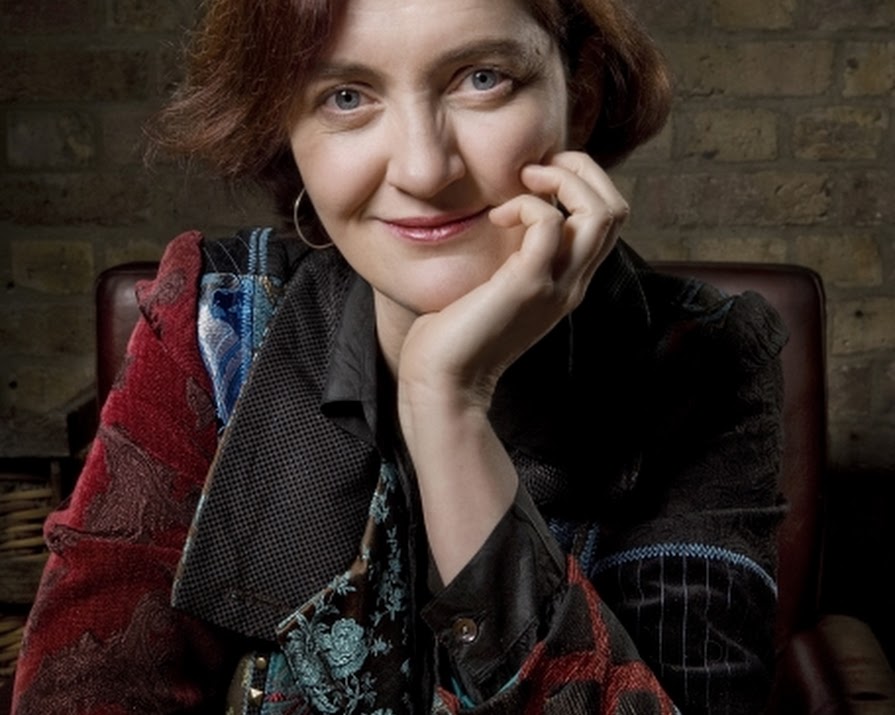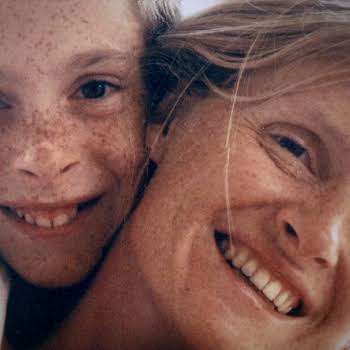
By Jennifer McShane
29th Oct 2016
29th Oct 2016
It wasn’t so long ago that Dublin-born author Emma Donoghue was one of literary Ireland’s best-kept secret secrets. The prolific talent had been writing short stories, books and plays for twenty years, until her Man Booker shortlisted?book, the captivating, multi-award winning?Room?- the story of a mother and son trapped in a single room who plot their?escape –?propelled her onto global best-sellers lists and into the spotlight.?Donoghue has just released her newest novel?The Wonder – a story based on centuries-old phenomenon of “fasting girls,” who achieved notoriety by starving themselves -?and in an interview for Lena Dunham’s Lenny Letter spoke about her screenwriting process, labels and the importance of owing her readers a “literary orgasm.” Here we compile her most eloquent words from the interview.
On why she finally decided to let Room be adapted for the big screen:
“There had been attempts to film some of my previous books, and they had never quite worked.?Producers approached me, but I was wary. I didn’t want to disappoint my fans and just create a money-maker.?And then director Lenny Abrahamson sent me a ten-page handwritten letter. He was eloquent, spelt everything correctly, and was patently intelligent.?He flew to Canada and sat with me around my kitchen table for a week. I was really involved as an executive producer, which means you’re kept in the loop on everything. I saw Brie Larson’s audition tape.”
On being engrossed in such a dark subject while writing Room:
“I think parents of small children know all the fears anyway. It felt like Room was a vehicle for all the thoughts I’d had about the vulnerability of my children.The research was grueling. I read a lot about abused and weirdly neglected children or children that had been shut away from the world: a lot of that stuff gave me the woolies. But writing the book didn’t depress me.”
What makes a girl “good” is to say no to appetites, to be pure, above sex, above need.?I think that says something pretty strong about the way we have shaped girlhood
On her new novel The Wonder and its connections to ‘girlhood’:
“It’s impossible to know whether it was it the girls’ decision to fast, but I think it was certainly connected to the rules of girlhood. What makes a girl “good” is to say no to appetites, to be pure, above sex, above need. So if you’ve got girls in sixteenth-century Italy and nineteenth-century Brooklyn and twentieth-century Belgium saying “I don’t need food, I can live without it,” alongside the massive phenomenon of anorexia today – I think that says something pretty strong about the way we have shaped girlhood.”
On her sense of duty as a writer:
“I think I’m quite an old-fashioned writer. I like to give a sense of resolution at the end. If a reader is going to bother to commit their spare time to you, and you want to turn them on, you rather owe them a literary orgasm.”
On being a lesbian writer and coming out today:
“I remember when I published Stir Fry?- a novel about a woman coming out 1990s Dublin – a New York reviewer said, very sneering-like, “This is coming out 101 – we were over this in the 1970s.” Well, I thought, You were over it in New York, but not in Dublin. You could write many a novel like that set in conservative, small towns. The techniques of coming out would be different, but the agonies would be the same. Being lesbian has made me very interested in outsiders, losers, and the culturally marginalized. If I ended up writing in Room about a woman and a little boy who are seen by many as freaks, I think it’s a sympathy I extrapolated from having been a teenage lesbian myself. ?I don’t mind talking about my labels [as a gay writer etc]. They can be limiting, but they can also be extremely helpful to help put your head above the crowd. My queer readers have been wonderfully loyal to me, so even if I don’t write a book with overtly queer themes, they still read me and write to me.”
?Read the full interview HERE

The Wonder is out now?























